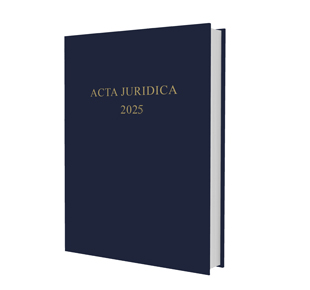Public interest standing under section 157(1)(d) of the Companies Act: A sharp arrow in the quiver of public interest guardians

ARTICLE
Public interest standing under section 157(1)(d) of the Companies Act: A sharp arrow in the quiver of public interest guardians
Author: Tebello Thabane
ISSN: 1996-2177
Affiliations: Senior Lecturer, Department of Commercial Law, University of Cape Town
Source: South African Law Journal, Volume 143 Issue 1, p. 155-183
https://doi.org/10.47348/SALJ/v143/i1a8
Abstract
This article examines the evolution of the notion of public interest in South African law, from the historical requirement for litigants to demonstrate a direct interest in the relief to its current endorsement by the Constitution of the Republic of South Africa, 1996. Traditionally, South African courts rejected the doctrine of the actio popularis, concerned that allowing open-access standing would open the floodgates of litigation and overwhelm the judicial system. However, the Constitution marked a paradigm shift, permitting any individual ‘acting in the public interest’ — an ‘ideological plaintiff’ — to protect constitutional rights through public interest actions. This constitutional pivot was further reflected in s 157(1)(d) of the Companies Act 71 of 2008, which introduced public interest standing into South African company law. Despite this significant shift, the application of public interest standing in company law remains largely unexplored until recent judicial developments. Notable cases, such as Recycling and Economic Development Initiative of South Africa v Minister of Environmental Affairs, Organisation Undoing Tax Abuse NPC v Myeni (Special Plea Judgment) and Vantage Mezzanine Fund II Partnership v Hopeson have shed light on the potential and limitations of this mechanism in company law. This article critically examines these developments, clarifying the contours of public interest standing, evaluating its effectiveness, and speculating on its future trajectory, informed by insights from pioneering cases.
